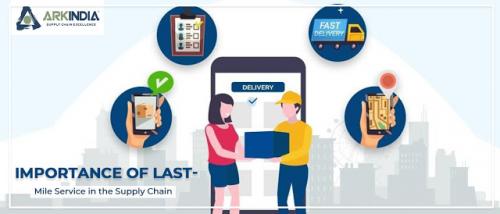
All logistics businesses in the world know the value of last-mile delivery. It is a term initially coined by the telecommunications companies referred to last-mile as the connection from ISP to the user’s location. Nowadays, it is exclusively used in the logistics business. It refers to the last phase of a delivery where the product is sent from the warehouse to the end customer.
The modern customer has high expectations and demands. The availability of services like same-day delivery and next-day delivery have given customers endless options to buy products from anywhere in the world, and they expect their needs to be fulfilled. This leaves a headache for the logistics department of these businesses since they have to keep these services available and excel at them while keeping the customer happy to be competitive in the market.
Last-mile delivery solutions aim to get the customer their package as soon as possible without any hassle or complications. It is about improving the transportations and warehousing at the last phase of delivery so that everybody’s time is saved. The order is fulfilled satisfactorily for all parties involved. So let’s take a look at some of the best practices to tighten up the last link of the supply chain.
1. Proper Planning
The warehousing and factory operations need to be absolutely well maintained and looked after for being very professional. These functions have to mimic the quality provided by an enormous enterprise. This is how any company providing last-mile delivery service should approach its operations.
Big enterprises are a great example because they move large amounts of products regularly worldwide, and they make sure that the deliveries are all on time. This is a result of well-made plans and immaculate execution. Their plans are made after careful research and diagnosis of their market, customer trends, the volume of orders based on location etc.
This is something that all logistics businesses should keep in mind. Planning and execution are of the utmost priority.
2. Implement the Right Technological Means
These days, technology has come a long way to help logistics businesses. Supply chains are hectic to manage, but technology and services available these days make it way more accessible than in the older days. These advancements, when employed in the right way, can improve the last-mile delivery service significantly.
A lot of companies looking to hire in-house developers to come up with their own apps. For people who want to avoid that, outsourcing also works as a big deal. An off-shore technology vendor who specializes in the development of logistics mobile applications can be found easily.
3. Collect and Analyze Data
Once you have implemented the above-mentioned points, the next step is to use the history of data collected by your app wisely. There will definitely be some holes that you will need to plug in initially, and the quickest way to achieve that is by analyzing the data collected closely.
Combined with the business intelligence that almost all businesses use these days, the software solution you have can significantly impact your operation. You can find cost-saving potential in your plans just by looking closely.
4. Closely Monitor Sources of Delay
These sources of delay that we speak of can occur from the customers more often than not. Tracking and maintaining customer history is of the utmost essence these days. Having a record and processes to overcome the same mistakes, again and again, is what is required for businesses to keep a tight ship running.
Another source of delay is drivers. Tracking trucks are standard, but most businesses don’t monitor their drivers, which is a different entity altogether. Studies suggest that drivers take a lot of time at pit stops, which can be avoided easily by tracking them instead of just their vehicles.
All these solutions are meant to streamline your last-mile delivery to enhance customer experience and give your business a better chance to prosper. If you’re looking for a Third-Party Logistics partner for your business, drop a mail at [email protected]. We can take care of all your logistics and supply chain management requirements..